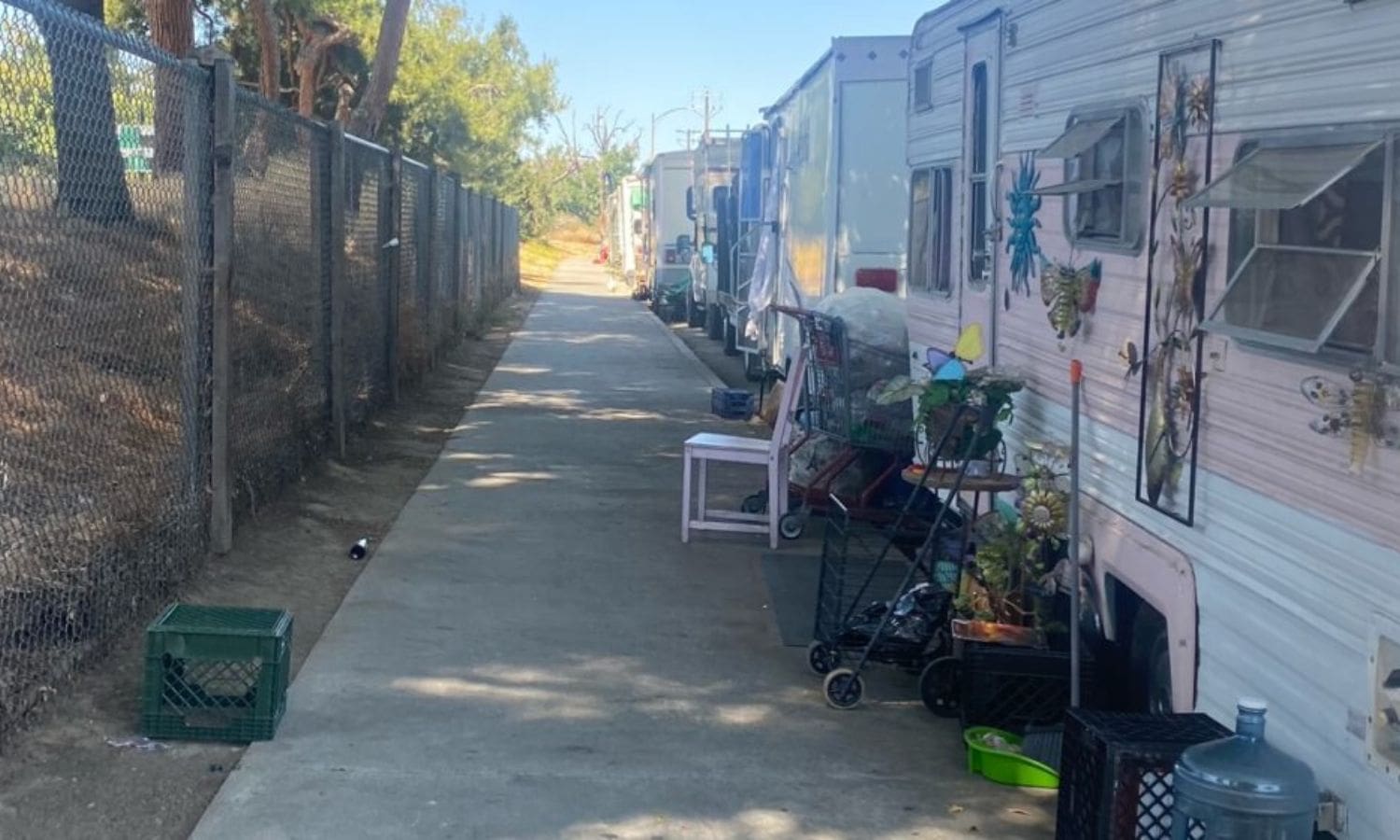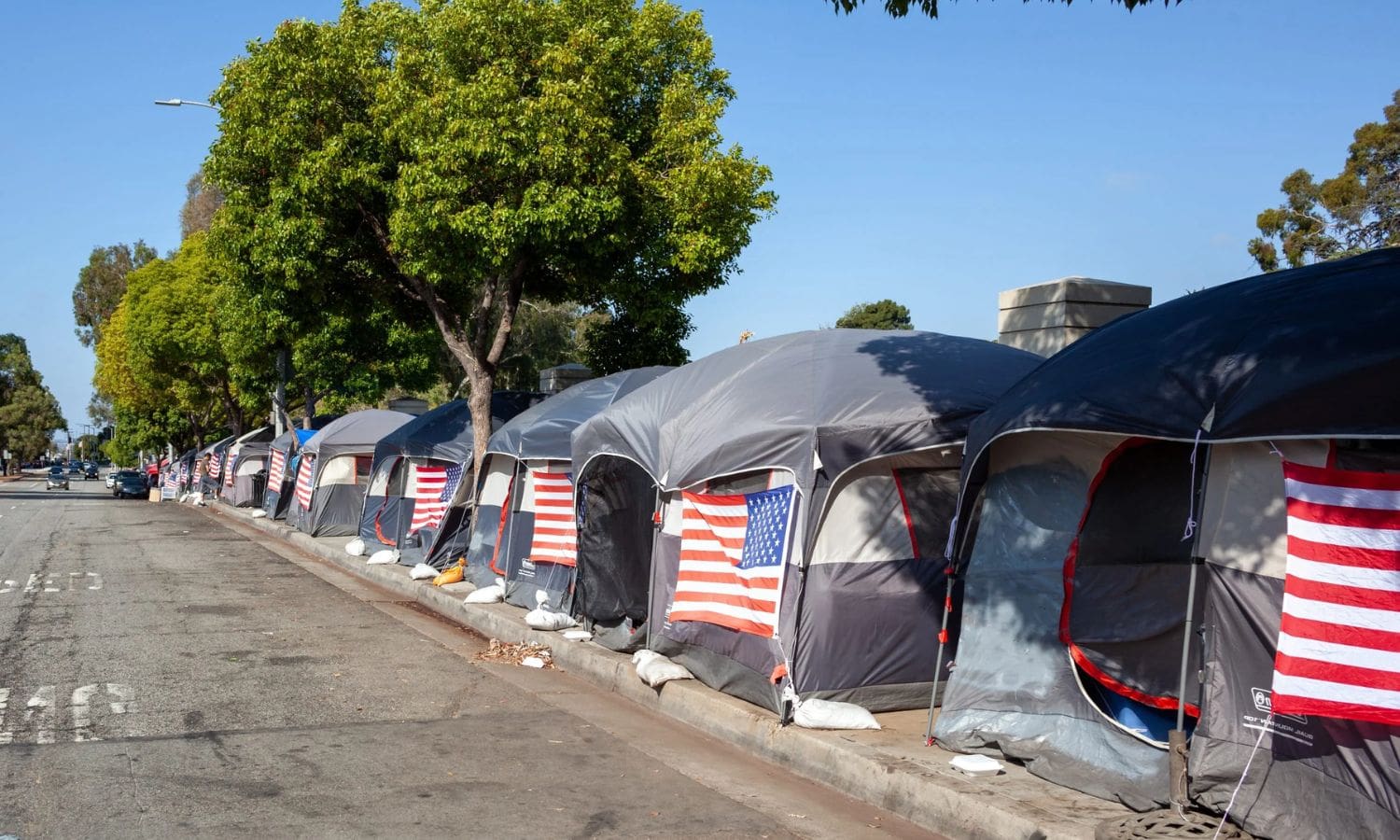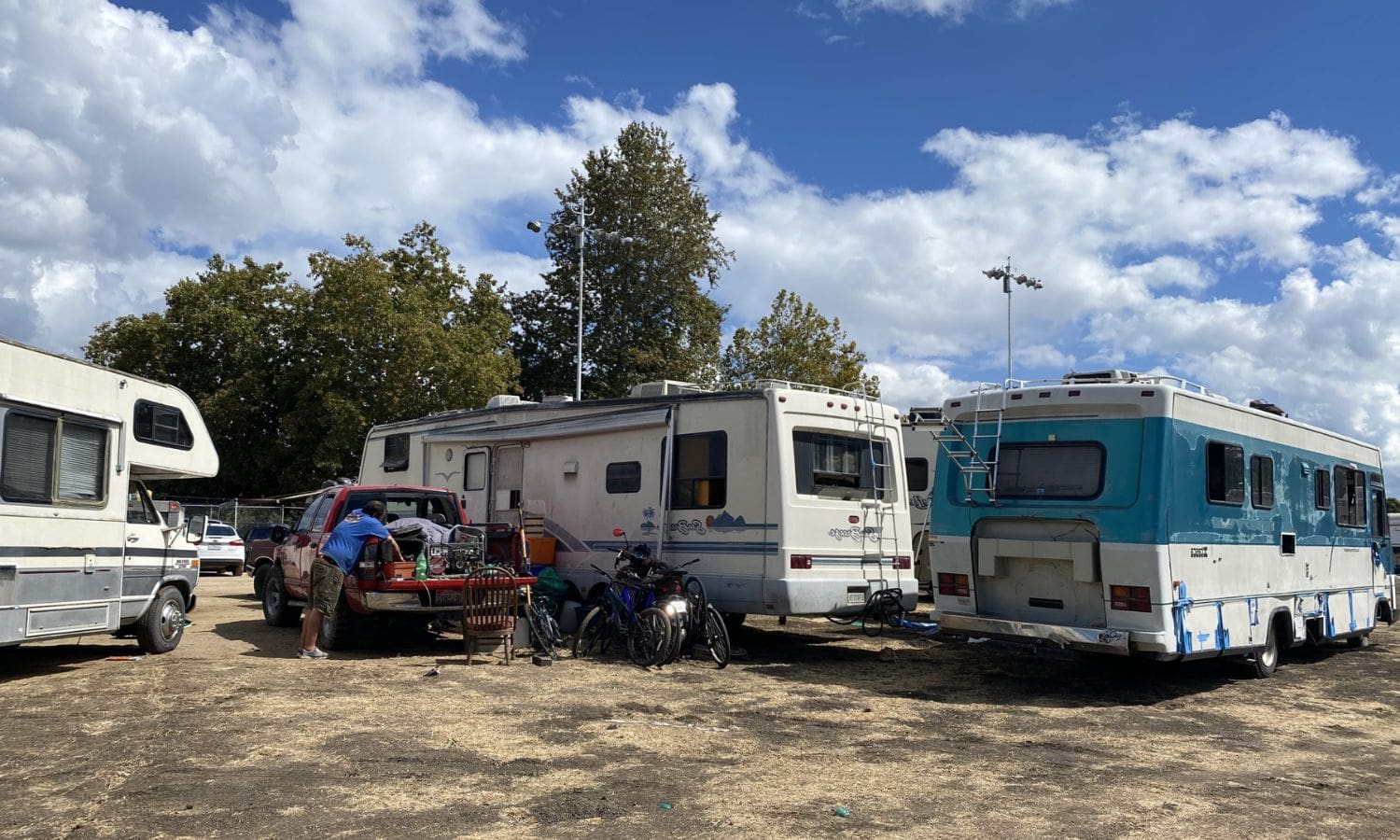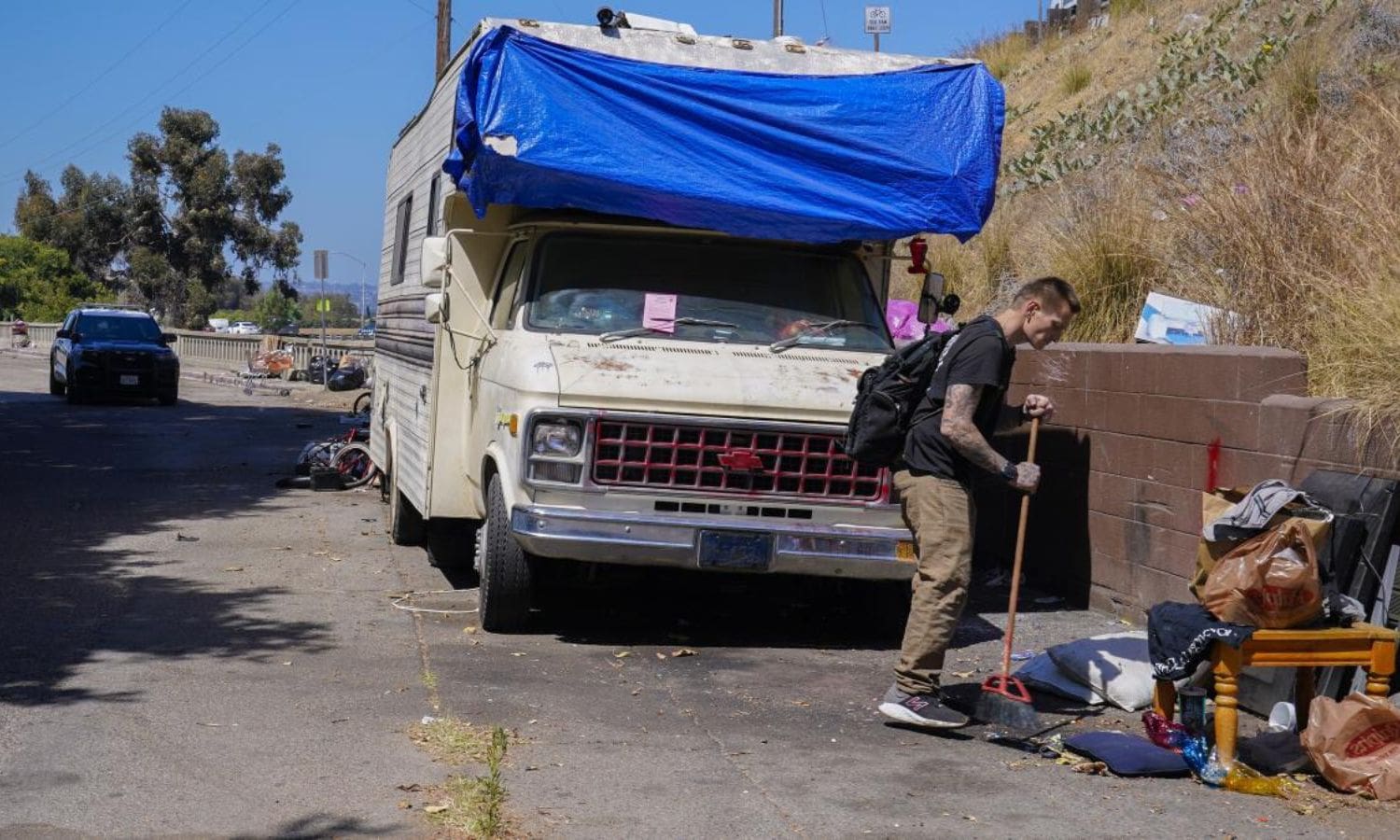San Jose Moves Forward With Homeless: In a unanimous decision, the city of San Jose has taken a significant step towards implementing a ban on homeless individuals residing in RVs near schools. This newly proposed ordinance aims to address concerns raised by parents and school administrators about the potential risks posed to students in these areas.
While the ban has garnered support from some community members, others argue that it fails to address the underlying issue of homelessness.
The ongoing debate surrounding this issue highlights the complexity of finding a balanced solution that prioritizes the safety of students while also addressing the needs of the homeless population.
As the city moves forward with this ban, it raises questions about the effectiveness of such measures in the long term and the potential need for broader policies and strategies to tackle the issue of homelessness in San Jose.
Key Takeaways Of San Jose Moves Forward With Homeless
- San Jose City Council has implemented a school-centric camping policy that prohibits homeless individuals from camping within 150 feet of K-12 schools. This decision was made to address concerns about student safety and a conducive learning environment.
- The council has proposed ordinances to address oversized vehicles on public roads, including restrictions on hazardous areas and towing vehicles from streets with overnight parking restrictions. These policies aim to mitigate risks and ensure clear and accessible streets.
- The mayor of San Jose expresses dissatisfaction with current policies and advocates for stricter bans on oversized vehicles. The mayor highlights the burden on Santa Clara County and urges lobbying for stricter measures to create a safer environment for residents and students.
- The issue of oversized vehicles near schools has caused divisions among residents and ongoing debate. Concerns have been raised about safety, limited visibility, and traffic congestion. Some argue that a blanket ban criminalizes homelessness and fails to address root causes, reflecting varying perspectives and concerns within the community.


Also Read: Formerly Homeless Veterans Endure Squalor in San Jose Residences
Unanimous Decision on School-Centric Camping Policy
The San Jose City Council has reached a unanimous decision to implement a school-centric camping policy, aimed at prohibiting homeless individuals from camping within 150 feet of K-12 schools. This decision comes as a response to concerns about the safety and well-being of students, as well as the need to maintain a conducive learning environment.
By implementing this policy, the council hopes to address the issue of homelessness while ensuring that the educational experience of students remains uninterrupted. This decision has raised some logistical challenges, as it involves towing vehicles parked in violation of the policy. There are also concerns about potential conflicts with state vehicle code enforcement.
However, the council believes that the benefits of protecting students outweigh these challenges and that the policy will ultimately contribute to the overall welfare of the community.
Additional Ordinances Proposed
Additional ordinances have been proposed by the San Jose City Council to address concerns related to oversized vehicles on public roads and towing vehicles from streets with overnight parking restrictions.
The council directed the drafting of an ordinance that would restrict oversized vehicles from public roads, specifically focusing on areas deemed hazardous by an engineering study. This proposed policy aims to mitigate the potential risks associated with the presence of oversized vehicles in these areas.
Additionally, another proposed ordinance involves towing vehicles from streets where overnight parking is prohibited. This measure seeks to enforce existing regulations and ensure that streets with overnight parking restrictions are clear and accessible for other uses.
These proposed ordinances demonstrate the city council’s commitment to addressing the various challenges posed by oversized vehicles and overnight parking restrictions, with the ultimate goal of maintaining public safety and order.
Mayor’s Dissatisfaction and Advocacy for Stricter Bans
Mayor Matt Mahan has expressed dissatisfaction with current policies regarding oversized vehicles and is advocating for stricter bans to address the issue effectively.
In his critique, Mahan emphasizes the need for measures beyond simply issuing fines. He highlights the perceived burden of accommodating oversized vehicles on Santa Clara County and urges the city to lobby the state for stricter bans.
Mahan’s dissatisfaction stems from the ongoing challenges posed by the presence of these vehicles near schools and residential areas. By advocating for stricter bans, the mayor aims to create a safer and more harmonious environment for residents and students.
This stance reflects his commitment to finding comprehensive solutions to the issue of homelessness and the impact it has on the community.


Divisions Among Residents and Ongoing Debate
Divisions among residents and an ongoing debate have emerged surrounding the issue of oversized vehicles near schools in San Jose, highlighting the varying perspectives and concerns within the community.
During deliberations, students, parents, and homeless advocates shared their concerns and arguments. Some expressed worries about the safety of having these vehicles near school campuses, pointing to potential hazards such as limited visibility and increased traffic congestion.
On the other hand, there were those who argued that a blanket ban on oversized vehicles criminalizes homelessness and fails to address the root causes of the issue. This discussion revealed the divisions among residents, with some emphasizing safety concerns and advocating for stricter bans, while others urged for more compassionate solutions to address the underlying problems of homelessness.
The ongoing debate reflects the complexity of the issue and the need for a well-rounded approach that considers the perspectives of all stakeholders involved.
Exploring Broader Policies and Long-Term Strategies
During upcoming budget talks, city leaders in San Jose are exploring broader policies and long-term strategies to address the challenges posed by oversized vehicles near schools and find a balanced solution to the complex issue of homelessness. Ideas being discussed include expanding the ban on RVs to other parts of the town, encouraging private property owners to allow RV parking, and exploring the city’s purchase of RVs from homeless individuals to support their transition to permanent housing.
These initiatives aim to alleviate the strain caused by the approximately 850 inhabited vehicles in San Jose, which affects up to 1,500 residents. By considering these broader policies, city leaders hope to navigate the complexities of homelessness and strike a balance between safety concerns and compassionate solutions.
| Proposed Policies and Strategies | Description |
|---|---|
| Expansion of RV ban | Extend the ban on RVs beyond school areas to other parts of the town, reducing their presence in residential neighborhoods. |
| Encouraging private property owners | Collaborate with private property owners to allow RV parking on their premises, increasing available spaces for homeless individuals. |
| City purchase of RVs | Explore the possibility of the city purchasing RVs from homeless individuals, providing them with financial support to transition into permanent housing. |
These initiatives reflect the city’s dedication to finding long-term solutions to homelessness while also addressing safety concerns. By considering a range of policies and strategies, San Jose aims to create a comprehensive approach that addresses the complex challenges posed by oversized vehicles near schools and throughout the city.


Conclusion Of San Jose Moves Forward With Homeless
The city of San Jose has made the unanimous decision to implement a school-centric camping policy, banning homeless RVs near schools. This move has sparked ongoing debate and divisions among residents.
Some residents are advocating for stricter bans, while others are expressing dissatisfaction with the mayor’s proposed ordinances.
As the city explores broader policies and long-term strategies, it remains to be seen how this issue will be resolved in the future.

